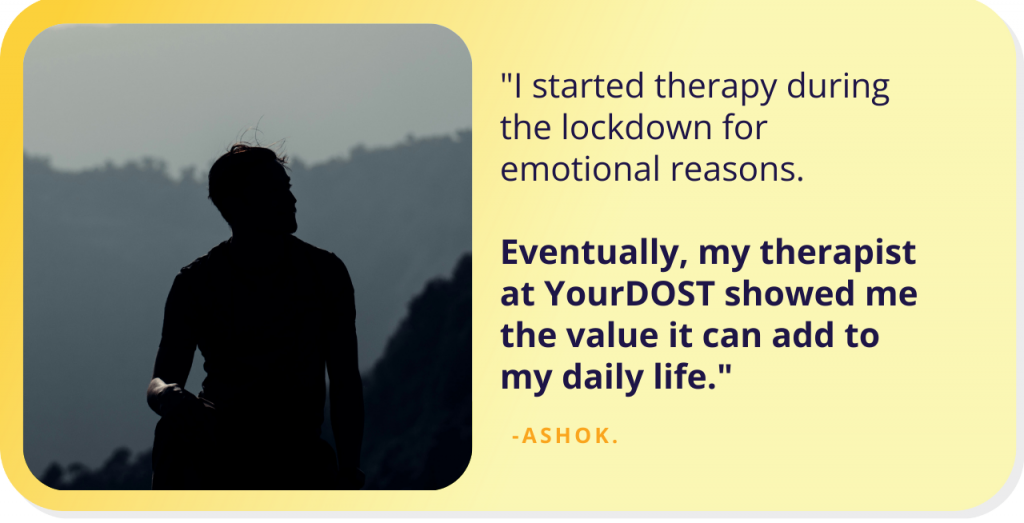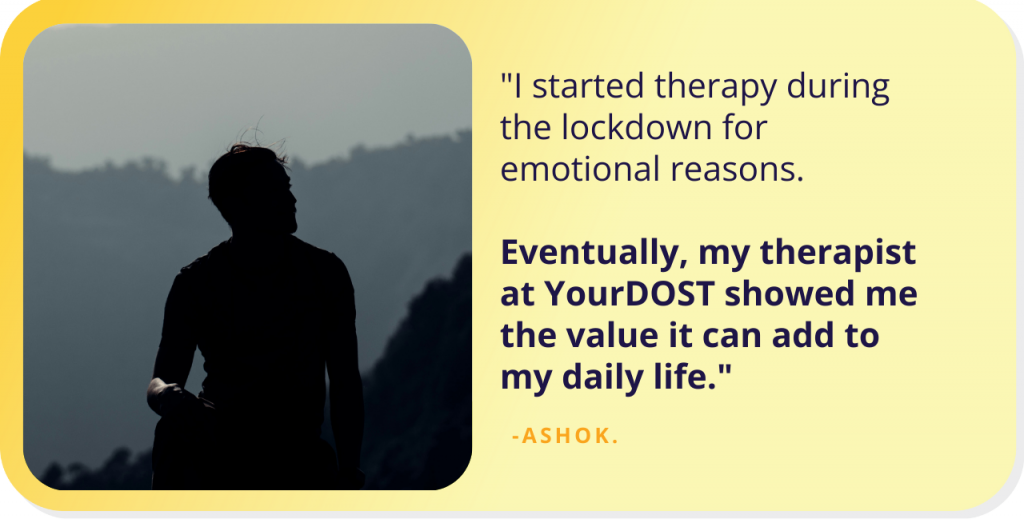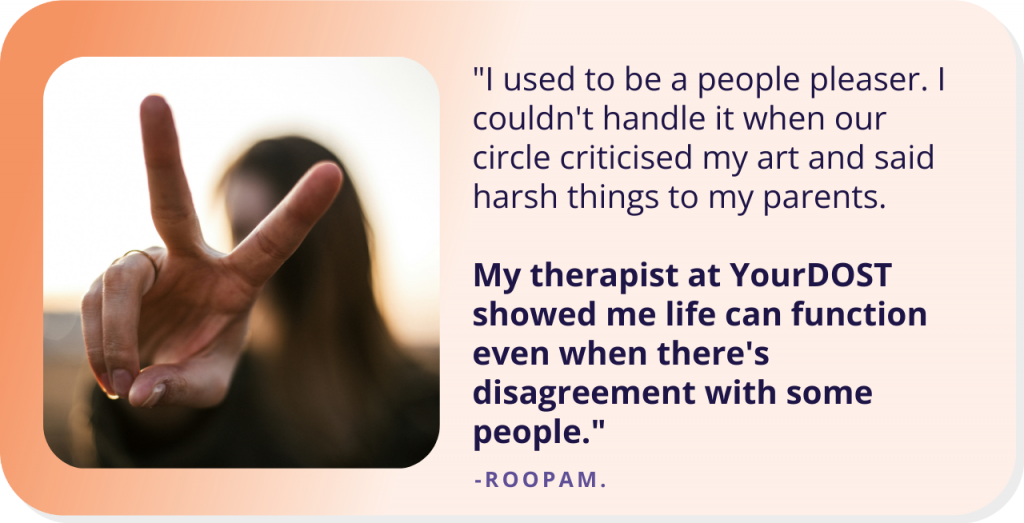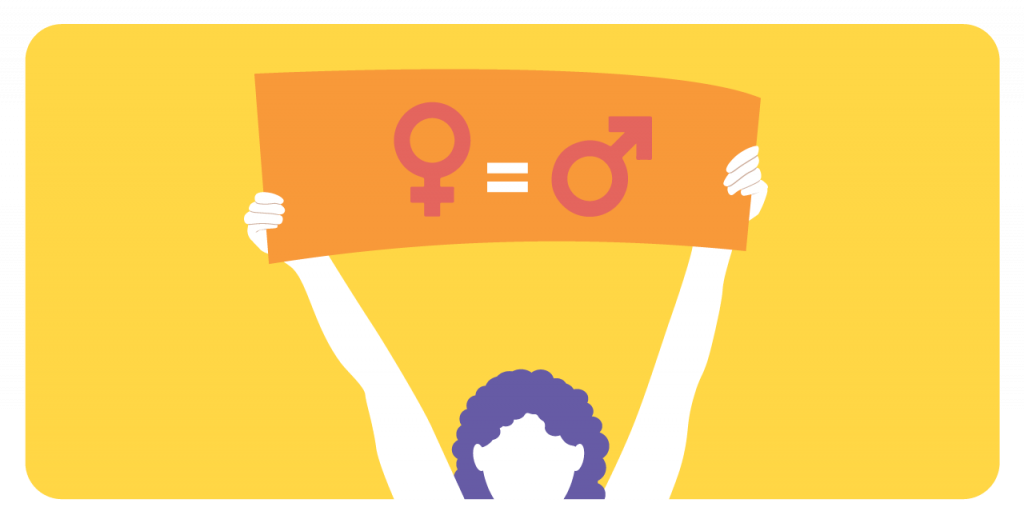
Ashok’s Story Of Navigating Counseling As A Weapon To Approach Life

Ashok (name changed) is a 21-year-old B Tech computer science graduate from Bennett University, Noida. Coming from South Indian roots, Ashok proudly points out that he has been exposed to different regions of India and abroad.
After completing school abroad, Ashok returned to India for his undergraduate studies. He is currently in Bangalore, building his professional life.
During his childhood, Ashok was an obedient kid who followed every rule but was also talkative. He adds that this used to be the only complaint his teachers had about him.
Growing up in a household where his parents consistently gave their best to keep the kids happy, Ashok developed healthy habits of learning and listening to thought-provoking things. He is very close to his elder sister and a bunch of cousins.
Ashok also loves to go for bike rides to peaceful places where he can trek, be quiet, and be one with nature. As it is evident that Ashok appreciates a good passion, he explains that he, too, had a list of things he wanted to be, from a pilot to a police officer to an archaeologist.
“I have had different phases in terms of choosing a career. When my late grandmother was diagnosed with a heart condition, I wanted to be a cardiologist. Being a pilot became a dream, but I’m yet to follow up since it is capital intensive.”
Ashok explains that these are why he chose to be an engineer and slowly figured out where he could walk in the future. Ashok was confident that he had found a roadmap to improve himself and his career when he started his undergraduate. He was at a loss when the COVID-19 pandemic hit and when the educational world went into virtual classes and sessions.
“Staying cocooned in a room and substituting the internet for every aspect and experience of college was an awful phase, which I would even prefer to skip in my life.”
Since his college had a subscription with YourDOST, Ashok decided to seek help and gain a rational perspective on his situation. He explains that he was lonely and sad, but therapy started being his hope to move forward.
“Even though I started therapy for an emotional reason, I realised along the sessions that it is a great mechanism to keep in our routine for a healthy lifestyle.”
Ashok elaborates that he met with different experts on the platform virtually and slowly overcame his negative emotions caused by the lockdown. He continued his sessions even after feeling better with two of his counselors, with whom he expressed a higher level of relatability.
“Both the women counselors were great listeners. I still take sessions from Ms Rineeta Banerjee because she is an empathetic listener. She is good at what she does and created a friendly atmosphere for me to work on my struggles and make decisions.”

Ashok adds that Ms Rineeta changed his entire image of counseling. He was surprised by the empathy they both showed him and the way Ms Rineeta put the pieces together. He describes going to therapy as having ‘an objective set of ears’ and has made it a habit to incorporate it into his daily life.
When Ashok had specific thoughts between sessions, the counselors also recommended that he journal those thoughts to understand himself better and communicate with his circle. Journaling helped him organise and structure his thoughts better.
Ashok explains that through therapy, he has also learned to listen to what a person tries to say before making his points. He also feels validated by the counselors for his thoughts and course of action.
“Every session, I feel that someone is listening to me, and they give their perspective only after acknowledging my views. This gives me a great deal of comfort.”
Ashok elucidates that he used to get frustrated when people gave their opinions without listening or empathising, so he expected therapy to give him a different experience. Instead, he felt admiringly thankful to his counselor for giving him that space, and she says that he expresses his gratitude to Ms Rineeta almost in every session.
“I thank my counsellor from the bottom of my heart in every call; I can never get tired of it. Even though the experts are trained, when not everyone around you wants to listen and understand, these traits are innate.”
Ashok has realised the value of therapy and feels lucky to have the opportunity. He gives himself a 4 out of 5 in terms of progress. We wish him all the best and welcome his idea of therapy as a mechanism to cope with daily life.
Ashok’s Warrior tips:
1.“Even when life is good, therapy can provide another set of ears to help determine the best decision-making methods.”
2.“Therapy is just for people with clinical disorders; It is a stigma that has to be eradicated.”
Are you someone who has gone through a difficult phase and emerged stronger and better, with some professional help? Share your story with us to encourage thousands of others who might be struggling. click here to submit your story.






